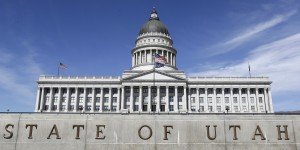SALT LAKE CITY — Government Records Ombudsman Rosemary Cundiff said in her annual report at the State Capitol recently that there has been an increase of government records requests in recent years.

When the Utah State Records Committee was created in 1992 after the Government Records and Management Act (GRAMA) became Utah’s comprehensive records law, the committee heard nine appeals. During 2016 and 2017, that number jumped to over 100.
Cundiff talked about why this increase has taken place and some of the challenges that come with it during a legislative committee hearing May 17.
“Changes in technology and the wide availability of information online have universally increased the public’s expectation of the availability of records and information,” Cundiff said.
Many people feel they should be able to find the records they are looking for online without going through any formal processes, according to Cundiff. When they find out this isn’t possible, however, some of them take out their frustrations on the State Records Committee.
“A lot of the appeals are repeat — people who have some kind of issue with the government,” Cundiff said. “They see the appeal as a way to expose what they see as corruption.”
One person, in particular, has called over 35 times since the beginning of the year, and even twice since Cundiff began her report, something she said made her feel overwhelmed.
Cundiff outlined a couple of changes she feels should take place to make her and the committee’s job a little bit easier.
The State Records Committee has two major functions: to hear appeals of records access denials under GRAMA and to approve retention schedules for government records. However, Cundiff said she feels it’s time for the Legislature to take a closer look at these functions.
“As time has passed, the appeals has become the dominant function, and retention schedules have been approved so that function has diminished significantly,” Cundiff said. “So my thought is perhaps it’s time to look at the composition of this committee and perhaps separate those functions.”
Rep. Norman Thurston, R-Provo, talked about what could be done “to make it more clear” what the public can and can’t have access to, so they don’t “waste” time on an appeal.
Thurston said explaining this up front and especially helping the public with things in “gray areas” that will eventually be released anyway can be “released up front” will help.




